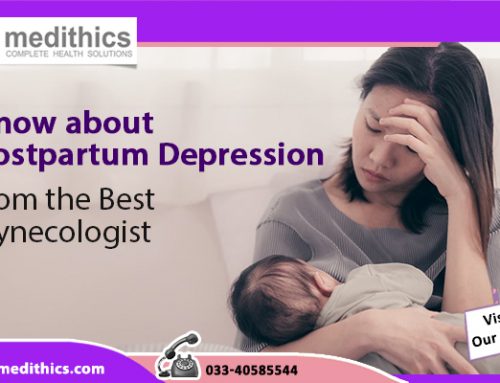Premenstrual syndrome (commonly known as PMS) is the most common condition faced by women belonging to the reproductive age. Its signs and symptoms are wide ranging and include including tender breasts, mood swings, food cravings, irritability, depression and fatigue. It is believed that almost 3 in every 4 menstruating women experience at least some form of this syndrome.
According to top gynaecologists in Kolkata, the common signs and symptoms happen to be visible in a regular pattern. However, the emotional and physical changes that one experiences during this premenstrual syndrome tend to be different for different women. In some, these are only slightly visible, but in others they may be pretty intense. Treatments together with changes in lifestyle can help one in managing or reducing the signs of this syndrome.
Symptoms:
There is a long list of signs and symptoms for premenstrual syndrome, but according to best gynaecologists in Kolkata, only a few of these are experienced by most women.
Behavioral and Emotional signs and symptoms:
- Anxiety or Tension
- Crying spells
- Depressed mood
- Irritability, mood swings or anger
- Food cravings and appetite changes
- Social withdrawal
- Insomnia
- Changes in libido
- Poor concentration level
Physical signs and symptoms:
- Muscle or joint pain
- Headache
- Breast tenderness
- Fatigue
- Weight gain
- Abdominal bloating
- Acne
- Diarrhea or constipation
- Alcohol intolerance
In some people, the emotional stress and physical pain are intense enough to disrupt their normal daily functioning. No matter how severe the symptoms are, these signs and symptoms usually disappear in four days from the beginning of the menstrual period in most women. However, a tiny percentage of women suffering from premenstrual syndrome experiences severe symptoms each month. This type of PMS is known as premenstrual dysphoric disorder (or PMDD). The usual symptoms of PMDD include mood swings, depression, anxiety, anger, overwhelming feeling, difficulty in concentrating, tension and irritability.
When to consult a doctor:
In case you have failed to cure the premenstrual syndrome through lifestyle changes, and the symptoms continue to affect your health and everyday activities, then it is advisable to consult the best gynaecologist in Kolkata at the earliest.
Causes:
The exact cause of premenstrual syndrome is not known yet, but a number of factors may be responsible for this condition. The signs and symptoms experienced in premenstrual syndrome keep changing with hormonal fluctuations and go away with pregnancy and ultimately menopause.





